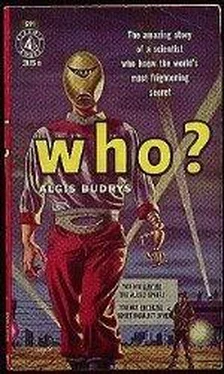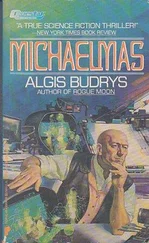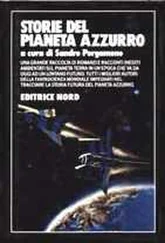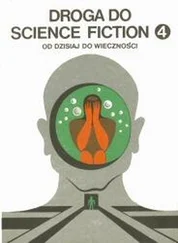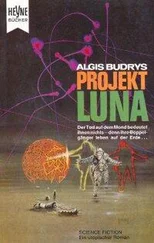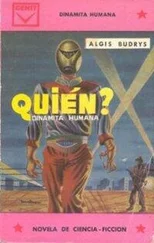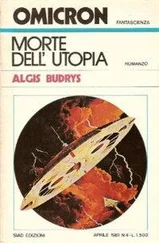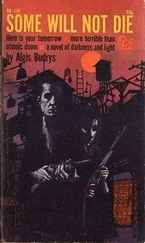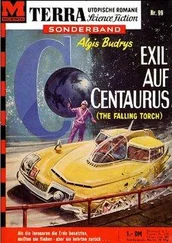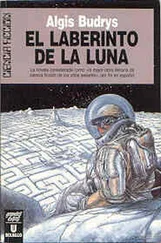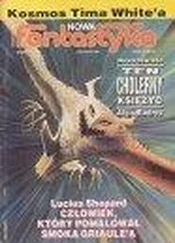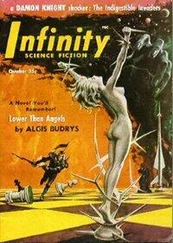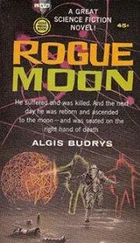“Here’s his powerplant. It’s only roughed out in the drawing, but we think it’s just a fairly ordinary pocket pile, something like the SNAP series the Americans worked out for their space program. It’s located where his lungs were, next to the blower that operates his vocal cords and the most ingenious oxygen circulator I’ve ever heard of. The delivered power’s electrical, of course, and it works his arm, his jaws, his audiovisual equipment, and everything else.”
“How well’s the pile shielded?”
Bannister let a measured amount of professional admiration show in his voice. “Well enough so we can get muddy X-rays right around it. There’s some leakage, of course. He’ll die in about fifteen years.”
“Mm.”
“Well, now, man, if they cared whether he lived or died, they’d have supplied us with blueprints.”
“They cared at one time. And fifteen years might be plenty long enough for them, if he isn’t Martino.”
“And if he is Martino?”
“Then, if he is Martino, and they got to him with some of their persuasions, fifteen years might be plenty long enough for them.”
“And if he’s Martino and they didn’t get to him? If he’s the same man he always was, behind his new armor? If he isn’t the Man from Mars? If he’s simply plain Lucas Martino, physicist?”
Rogers shook his head slowly. “I don’t know. I’m running out of ideas for quick answers. But we have to find out. Before we’re through, we may have to find out everything he ever did or felt — everyone he talked to, everything he thought.”
Lucas Martino was born in the hospital of the large town nearest to his father’s farm. His mother was injured by the birth, and so he was both the eldest son and only child of Matteo and Serafina Martino, truck farmers, of Milano, near Bridgetown, New Jersey. He was named after the uncle who had paid his parents’ passage to the United States in 1947 and lent them the money for the farm.
Milano, New Jersey, was a community of tomato fields, peach orchards, and chicken farms, centering on a general store which sold household staples, stock feed, gasoline for the tractors, and was also the post office. One mile to the north, the four broad lanes of a concrete highway carried booming traffic between Camden-Philadelphia and Atlantic City. To the west, railroad tracks curved down from Camden to Cape May. To the south, forming the base of a triangle of communications, another highway ran from the Jersey shore to the Chester ferry across the mouth of the Delaware, and so connected to all the sprawling highways of the Eastern Seaboard. Bridgetown lay at the meeting of railroad and highway, but Milano was inside the triangle, never more than five minutes away from the world as most people know it, and yet far enough.
Half a century earlier, the clayey earth had been planted, acre-on-acre, in vineyard, and the Malaga Processing Corporation had imported workers by the hundreds from old Italy. Communities had grown up, farms had been cleared, and the language of the area was Italian.
When the grape blight came, the tight cultural pattern was torn. Some, like Lucas Maggiore, left the farms their fathers had built and moved to the Italian communities in other cities. To a certain extent their places were taken by people from different parts of the world. And the newcomers, too, were all farmers by birth and blood. In a few years the small communities were once again reasonably prosperous, set in a new pattern of habits and customs that was much like the old. But the outside world had touched the little towns like Milano, and in turn Milano had sent out some of its own people to the world as most of us know it.
The country was warm in the summer, with mild winters. The outlying farms were set among patches of pine and underbrush, and there were wide-Eyed deer that came into the kitchen gardens during the winter. Most of the roads were graded gravel, and the utility poles carried only one or two strands of cable. There were more pickup trucks than cars on the roads, though the cars were as likely to be new Dodges and Mercurys as not. There was a tomato-packing plant a few miles up the road, and Matteo Martino’s farm was devoted mostly to tomato vines. Except for occasional trips to Bridgetown for dress material and parts for the truck, the packing plant and general store were as far from home as Matteo ever found it necessary to go.
Young Lucas had heavy bones and an already powerful frame from Matteo’s North Italian ancestry. His eyes were brown, but his hair at that age was almost light enough to be blond. His father had a habit of occasionally rumpling his hair and calling him Tedeschino — which means “the little German” — to his mother’s faint annoyance. They lived together in a four-room farmhouse, a closely knit unit, and Lucas grew naturally into a share of the work. They were three people with three different but interdependent responsibilities, as they had to be if the work was to go properly. Serafina kept house and helped with the picking. Matteo did the heavy work, and Lucas, more and more as he grew older and stronger, did the necessary maintenance work that had to be kept up day by day. He weeded, he had charge of racking and storing the hand tools, and Matteo, who had worked in the Fiat plant before he came to America, was gradually teaching him how to repair and maintain the tractor. Lucas had a bent for mechanics.
Having no brothers or sisters, and being too busy to talk much with his parents during the day, he grew into early adolescence alone, but not lonely. For one thing, he had more than the ordinary share of work to keep him occupied. For another, he thought in terms of shaped parts that fitted into other parts to produce a whole, functioning mechanism. Having no one near his own age whose growth and development he could observe, he learned to observe himself — to stand a little to one side of the young boy and catalogue the things he did, putting each new discovery into its proper place in an already well-disciplined and instinctively systematic brain. From the outside, no doubt, he seemed to be an overly-serious, preoccupied youngster.
Through grammar school, which he attended near his home, he formed no important outside associations. He returned home for lunch and immediately after school, because there was always work to do and because he wanted to. He got high marks in all subjects but English, which he spoke fluently but not often enough or long enough to become interested in its grammatic structure. However, he did well enough at it, and when he was thirteen he was enrolled in the high school at Bridgetown, twelve road miles away by bus.
Twenty-four miles by bus, every day, in the company of twenty other people your own age-people named Morgan, Crosby, Muller, Kovacs, and Jones in addition to those named Del Bello and Scarpa can do things. In particular, they can do things to a quiet, self-sufficient young boy with constantly inquiring eyes. His trouble with grammar disappeared overnight. Morgan taught him to smoke. Kovacs talked about the structure of music, and with Del Bello he went out for football. Most important, in his sophomore year he met Edmund Starke, a short, thickset, reticent man with rimless glasses who taught the physics class. It would take a little time, a little study, and a little growth. But Lucas Martino was on his way out into the world.
It was a week after the man had come across the line. Deptford’s voice was tired and empty over the phone. Rogers, whose ears had been buzzing faintly but constantly during the past two days, had to jam the headpiece hard against his ear in order to make out what he was saying.
“I showed Karl Schwenn all your reports, Shawn, and I added a summary of my own. He agrees that nothing more could have been done.”
Читать дальше
